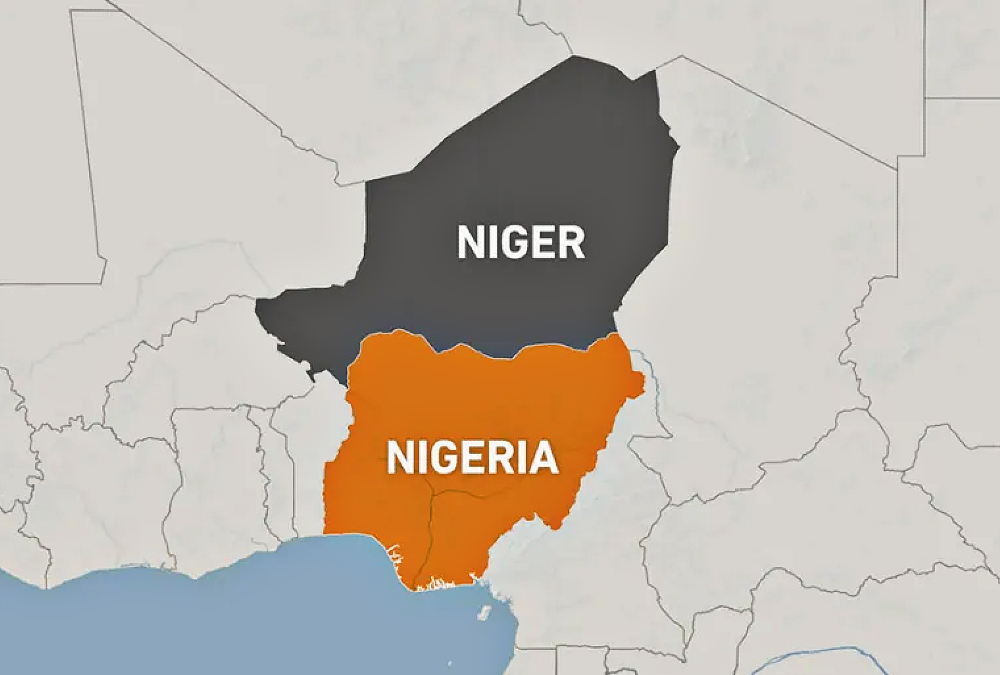Owusu on Africa
The security accord between Nigeria and Niger: the undercurrents


By Fidel Amakye Owusu
In mid-2023, when a coup unfolded in Niger, neighboring Nigeria expressed deep concern over the unfolding situation. As the most populous country in Africa, with a new president at the helm, Nigeria had recently assumed the chairmanship of the Economic Community of West African States (ECOWAS).
Abuja was particularly resistant to seeing another ECOWAS member state fall under the rule of a military junta.
Nigeria’s Firm Stance
Under President Bola Tinubu’s leadership, Nigeria, supported by several regional partners, took a firm stance against the coup, opting for a policy of pressure without offering any incentives to the junta. However, ECOWAS’ threat of military intervention eventually faltered, and the bloc found itself yielding to the junta’s defiance.
The Creation of a New Alliance
Since then, Niger, with backing from Mali and Burkina Faso, has remained resolute in its stance. The three countries declared their withdrawal from ECOWAS and announced the formation of a political and economic alliance intended to safeguard their sovereignty.
A Shift in Security Cooperation
In a recent development, the Nigerian military signed an agreement with Niger’s military counterparts, reaffirming their commitment to strengthening cooperation for regional stability and security. The agreement, which was signed on Nigerien soil, signals a shift in dynamics that goes beyond the immediate security concerns.
The Role of Security Collaboration
While security collaboration has often been cited as a valid reason for cooperation between junta-led states and ECOWAS, this new agreement hints at deeper, more pragmatic factors at play.
Niger’s Security Before and After the Coup
Firstly, before the 2023 coup, Niger was relatively stable in terms of security – at least when compared to its neighbors, Burkina Faso and Mali. Niger had made significant strides in engaging with armed sub-state actors during the post-2012 peace processes, positioning itself as more stable than its regional counterparts.
However, since the coup, extremist groups have escalated their attacks on government targets, presenting a new challenge for the junta.
Burkina Faso and Mali’s Struggles
In a twist of fate, Burkina Faso and Mali – both of which had pledged to defend Niger’s junta – are now struggling to combat insurgents and rebels. The junta in Niamey, once resolute, may now be reconsidering its position as its supposed protectors face severe setbacks.
In recent weeks, both Mali and Burkina Faso have suffered heavy losses, with hundreds of soldiers killed and extremists making significant territorial gains. Extremists captured a strategic town in Burkina Faso, further compounding the instability in the region.
A Rational Move for Security
The deteriorating security situation in both Niger and its supporting neighbors is no coincidence. The junta in Niamey is wisely recalibrating its approach, opting for a security agreement with its most significant neighbor, Nigeria.
Beyond the immediate threat posed by insurgents in western Niger, security cooperation with Nigeria is crucial in addressing the broader challenges stemming from the Lake Chad region.
Conclusion: Pragmatic Decisions for Stability
In a region marked by instability and escalating threats, the junta’s move toward greater security collaboration reflects a pragmatic, rational approach to preserving Niger’s sovereignty and ensuring its security.
Fidel Amakye Owusu is an International Relations and Security Analyst. He is an Associate at the Conflict Research Consortium for Africa and has previously hosted an International Affairs program with the Ghana Broadcasting Corporation (GBC). He is passionate about Diplomacy and realizing Africa’s global potential and how the continent should be viewed as part of the global collective.

